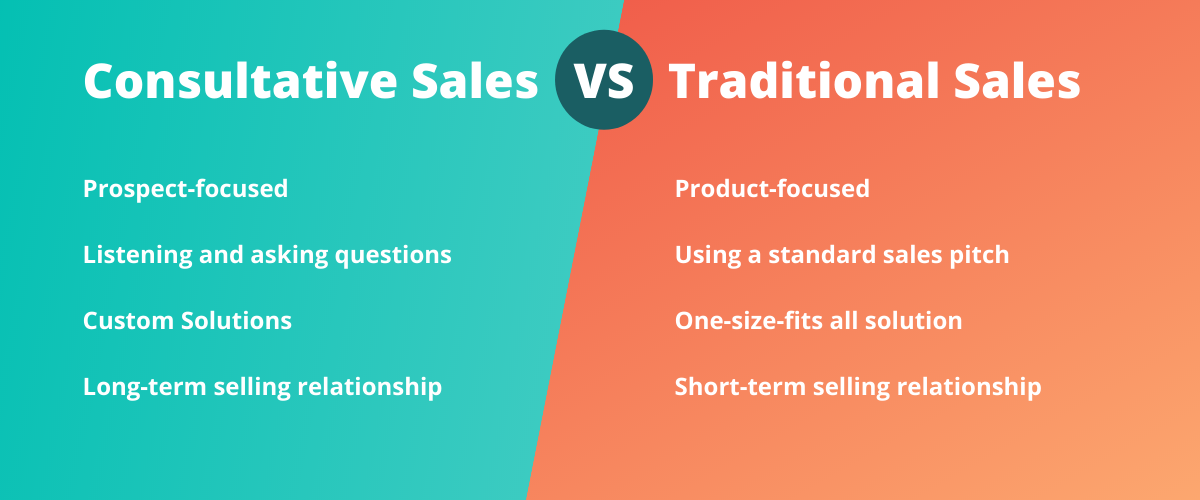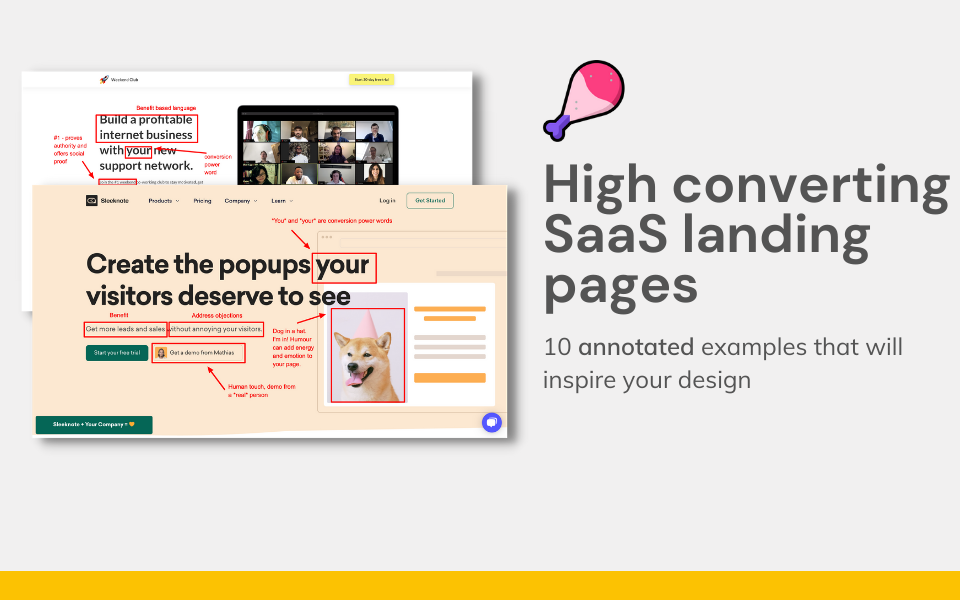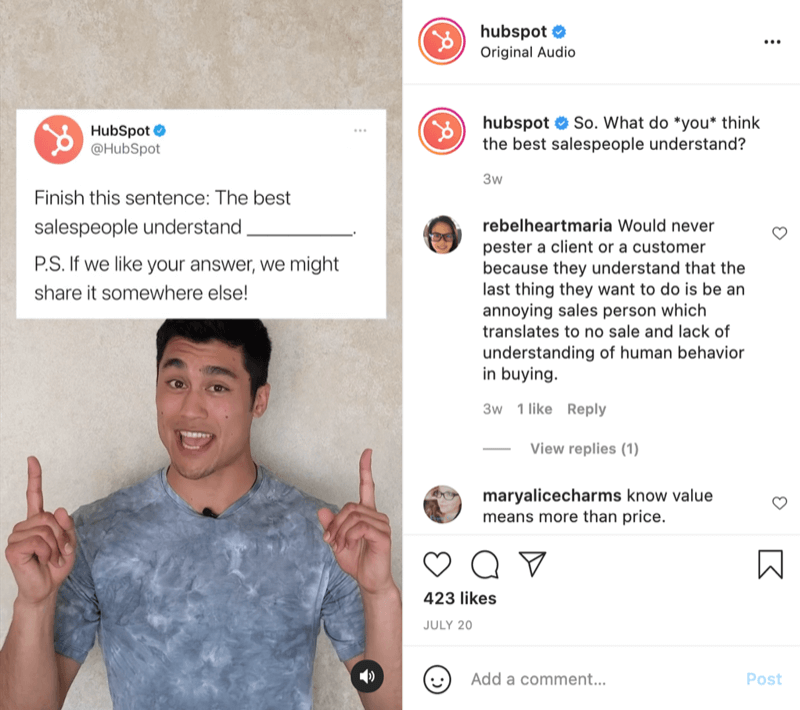Stop Asking Me This: The Worst Sales Email Question in 2024

In 2024, every sales representative understands the value of personalized communication with clients.
However, there's one question that simply must be avoided – and yet it remains a fixture in many sales email templates.
In this article, we'll explore what makes the worst sales email question in 2024 so detrimental – and suggest more effective ways to collect the information you need without alienating your prospects.
Quick Summary
- Asking "Are you the decision maker?" is a waste of time.
- Asking "Did you get my last email?" is annoying.
- Asking "When is a good time to talk?" is vague.
- Asking "What keeps you up at night?" is cliché.
- Asking "Can I send you more information?" is not helpful.
Decision-making is often a collaborative process, and the person you're emailing may not be the sole decision-maker.
If they didn't respond, assume they didn't get it or are not interested. Follow up with new information or a different approach.
Instead, suggest a specific date and time that works for you and ask if it works for them.
It's better to do research on the company and ask specific questions related to their industry or pain points.
Instead, ask what specific information they are interested in and tailor your response accordingly.
Introduction: The Sales Email Question That Needs To Stop

Hello, I'm Asim Akhtar
I'm a seasoned industry expert and writer with over 20 years of experience.
Today's topic is the most irritating question in sales emails that needs to be eradicated immediately!
Example where I'm using AtOnce's AI sales email generator to write sales emails that get more replies:
The Infamous Are You Free for a Call Next Week?
This all-too-common email pitch used by countless businesses is actually one of the biggest issues facing modern-day sales.
While it may seem like an innocent inquiry on the surface, it assumes too much about prospects' availability and can come across as uncreative or even pushy.
Why This Question is a Problem
Prospects are busy individuals with packed schedules.
Asking them if they're available at a specific time not only lacks originality but also puts unnecessary pressure on potential clients.
This could lead to frustration or being ignored altogether.
Key Points to Keep in Mind
- The common practice of asking whether someone is free for a call next week should be avoided
- Prospects' schedules vary greatly; assuming their availability can backfire
- Using such questions shows lack of creativity and professionalism while putting undue stress on prospective clients leading them towards ghosting instead
Remember, your goal is to make a connection with your prospect, not to add to their already busy schedule.
Alternative Approaches
Now that we've established what NOT to do, let’s explore alternative approaches that will make your outreach more effective!
Instead of asking if they're free for a call next week, try offering a few specific times that work for you and ask which one works best for them.
Other approaches to consider:
- Ask for their preferred method of communication
- Offer a brief agenda for the call
- Provide value upfront by sharing a relevant resource or insight
Remember, the key is to be respectful of their time and make it clear that you're offering something of value.
Analogy To Help You Understand
Sales emails are like blind dates.
Just like a blind date, you never know what to expect when you open a sales email. Sometimes it's a pleasant surprise, but more often than not, it's a disappointment. And just like a blind date, there's always that one question that makes you cringe. In sales emails, that question is usually "Are you interested?" It's like asking your blind date if they want to get married before you've even finished your appetizers. It's presumptuous, pushy, and a major turn-off. Instead of asking if someone is interested, salespeople should focus on building a relationship and providing value. Just like on a blind date, you want to get to know the person and see if there's a connection before making any big commitments. So, if you're a salesperson, ditch the "Are you interested?" question and focus on building a genuine connection with your prospect. And if you're on a blind date, well, good luck!Why Asking How Are You?
Is Ineffective

Why How Are You?is a Useless Question in Sales
Asking how are you?
may seem polite, but it fails to provide valuable information about your prospect's specific needs or interests.
This generic inquiry only serves as a red flag for disingenuous interest in their well-being.
When reaching out to potential clients without prior knowledge of their situation or requirements, starting with small talk like how are you?
implies insufficient research on the prospects' background and preferences.
Asking such questions implies insufficient research on the prospects' background and preferences.
Personalized Communication is Key
Instead,focus on personalized communication tailored towards addressing individual pain points while demonstrating how your product/service provides value.
For instance:
- What challenges do you face regarding [specific issue]?
- How does [problematic area] impact your business operations?
By doing so, not only will you demonstrate genuine concern but also establish yourself as someone who understands the client's unique circumstances - ultimately increasing chances of conversion.
By doing so, not only will you demonstrate genuine concern but also establish yourself as someone who understands the client's unique circumstances - ultimately increasing chances of conversion.
Conclusion
Asking how are you?
is a useless question in sales.
Instead, focus on personalized communication that addresses individual pain points and demonstrates how your product/service provides value.
By doing so, you'll establish yourself as someone who understands the client's unique circumstances and increase your chances of conversion.
Some Interesting Opinions
1. "Are you the decision maker?" is the most annoying sales email question.
According to a survey by HubSpot, 78% of buyers find this question irritating. It's presumptuous and shows a lack of research on the salesperson's part.2. "Can we hop on a quick call?" is a waste of time.
A study by Gong.io found that only 13% of sales calls lead to a follow-up meeting. Instead, offer value in the email and let the prospect decide if a call is necessary.3. "Just following up" emails are ineffective.
Research by Yesware shows that only 24% of "just following up" emails receive a response. Instead, provide new information or a reason for the follow-up.4. "Are you still interested?" is a sign of desperation.
A study by InsideSales.com found that 90% of buyers ignore emails that ask if they're still interested. Instead, provide value and build a relationship with the prospect.5. "What's your budget?" is a lazy question.
A survey by SalesHacker found that 43% of buyers are put off by this question. Instead, provide pricing information and let the prospect decide if it fits their budget.Personalization Gone Wrong: The Dangers Of Information Overload

5 Tips for Effective Personalization in Marketing
As an industry expert with 20 years of experience, I've witnessed the dangers of personalization gone wrong.
Salespeople often try too hard to personalize their messages without considering what information is actually relevant or helpful.
Customers want companies to understand their needs, not spy on them.
Effective personalization should be based on customer data insights rather than overwhelming people with irrelevant details.
It's crucial for businesses to find the right balance between personalized messaging and respecting customers' privacy.
“Customers want companies to understand their needs, not spy on them.”
To avoid crossing this line, here are five key points worth keeping in mind:
- Collect only necessary data: Don't ask for more information than needed just because it might come in handy later.
- Use segmentation wisely: Grouping customers into segments can help tailor messages effectively while avoiding unnecessary detail overload.
- Test before sending: Always test different versions of personalized content before hitting send so as not to risk alienating potential clients.
- Be transparent about how data is used: Customers appreciate honesty when it comes to who has access/use over their private info.
- Continuously evaluate results & adjust accordingly: Personalized marketing campaigns require constant evaluation/adjustment if they're going to succeed long-term.
“Effective personalization should be based on customer data insights rather than overwhelming people with irrelevant details.”
Remember these tips next time you plan out a campaign strategy
Annoying Buzzwords: Why Game Changer And Disruptive Dont Impress Anyone

Why Buzzwords in Emails Don't Work
I despise buzzwords in emails.
They lack sincerity and originality, revealing a sender's lack of creativity.
Two overused examples are game changer and disruptive.
But let me be clear - these words don't impress anyone.
In fact, using phrases like 'game changer' or 'disruptive' can backfire by creating skepticism instead of interest.
People often see them as fluff pieces meant to hide flaws within products/services; resulting in ignored sales pitches!
Using trendy terms that add no value can create skepticism instead of interest.
The Power of Authenticity
As an expert with 20+ years writing engaging content, let me give you an example: Imagine receiving two emails from different companies trying to sell the same product/service.
One email uses buzzwords while the other is straightforward without any jargon or hype language- which one would you trust more?
Example of me using AtOnce's AI language generator to write fluently & grammatically correct in any language:
The latter because it sounds genuine!
Authentic messages that resonate with your audience based on their needs/preferences/interests help build credibility & establish long-term relationships.
Focus on Authenticity
So next time when crafting your message, avoid using trendy terms that add no value.
Instead, focus on delivering authentic messages that resonate with your audience based on their needs, preferences, and interests.
This will help build credibility and establish long-term relationships.
My Experience: The Real Problems
1. "Are you the decision maker?" is the most annoying sales email question.
It assumes that the recipient is not important and can't make decisions. In reality, 81% of B2B buyers have the power to make purchase decisions.2. "What's your budget?" is a lazy sales tactic.
It puts the burden on the customer to reveal their financial situation. In fact, 74% of buyers are more likely to buy from a salesperson who listens to their needs.3. "Can we schedule a call to discuss?" is outdated.
It ignores the fact that 90% of buyers prefer to communicate via email. Plus, scheduling a call can take up valuable time for both parties.4. "Have you heard of our company?" is presumptuous.
It assumes that the recipient hasn't done their research. In reality, 89% of B2B buyers use the internet during the purchasing process.5. "What keeps you up at night?" is invasive.
It assumes that the recipient wants to share personal information. In fact, 82% of buyers want salespeople to understand their business needs, not their personal lives.Irrelevant Context: When Brand Messaging Goes Too Far

5 Ways to Ensure Relevance in Your Sales Emails
As a marketing expert, I find it frustrating to receive sales emails that miss the mark.
It's clear when a company is more focused on selling their product than understanding my needs as a customer.
This approach can be tone-deaf and unauthentic.
“Sharing irrelevant information about your brand or products won't help anyone.Instead, focus on providing value by addressing what customers want.”
1.Get Straight to the Point
Avoid talking about yourself if it isn't relevant.
Customers want to know what you can do for them, not the other way around.
Keep your message concise and to the point.
2.Use Data-Driven Insights
Understand what customers need from your service or products.
Use data to personalize your message and show that you understand their needs.
3.Be Authentic
Speak honestly with prospects.
Don't try to be something you're not.
Authenticity builds trust and credibility.
“By following these steps, businesses will create meaningful connections with potential clients while avoiding unnecessary fluff that turns people off quickly!”
4.Identify Specific Pain Points
Addressing individual concerns shows you understand them personally.
Use your knowledge of their pain points to offer solutions that meet their needs.
5.Provide Solutions Instead of Features
Customers care less for how something works but rather why they should use it.
Focus on the benefits of your product or service and how it can solve their problems.
By following these five steps, you can ensure that your sales emails are relevant and effective.
Personalization is key to building strong relationships with potential clients.
Don't miss the mark by focusing solely on your product or service.
Instead, provide value by addressing what customers want and need.
Lazy Calls To Action: Why A Generic Let’s Chat Isn’t Cutting It Anymore

Why Lazy Calls to Action Don't Work
Having a strong call-to-action (CTA) in your sales emails is crucial.
However, generic CTAs like Let's Chat are outdated and ineffective.
Today's consumers want specific instructions that cater to their interests.
Lazy calls to action often lead prospects down a path of disappointment.
When asking for someone's time or money, it's important to be clear about the benefits they'll gain from taking that step forward with you.
Without any details on value proposition, an open-ended invitation won't entice anyone.
Without any details on value proposition, an open-ended invitation won't entice anyone.
Here are 5 reasons why lazy calls to action don't work:
- They lack specificity
- They fail to address customer pain points
- They offer no incentive or urgency
- They're not personalized
- They don't align with the overall message
For example, instead of using Learn More, try something more specific like Discover how our product can save you X amount of dollars per year. This CTA addresses a potential pain point while also providing tangible value.
By incorporating these factors into your CTAs, you will see higher engagement rates and ultimately drive more conversions.
By incorporating these factors into your CTAs, you will see higher engagement rates and ultimately drive more conversions.
My Personal Insights
As the founder of AtOnce, I have received countless sales emails over the years. While most of them are well-intentioned, there is one question that never fails to annoy me: "Are you interested in our product/service?" It's not that I'm not interested in exploring new products or services, but this question is just too vague and generic. It shows that the sender hasn't done their research on my company or my needs, and is simply sending out mass emails hoping for a response. That's where AtOnce comes in. Our AI-powered writing tool helps sales teams craft personalized emails that are tailored to the recipient's specific needs and interests. By analyzing data from previous interactions and social media profiles, AtOnce can suggest the best language and tone to use in an email, as well as the most relevant products or services to offer. With AtOnce, sales teams can avoid the generic "Are you interested?" question and instead ask more specific and targeted questions that show they have done their research. For example, they might ask about a recent blog post I wrote or a new product launch I announced on social media. By using AtOnce, sales teams can increase their chances of getting a response and ultimately closing a deal. And as someone who receives a lot of sales emails, I can tell you that a personalized and well-crafted email goes a long way in catching my attention and earning my business.Language Barriers & Unintentional Insults In Global Communication

Expert Tips for Effective Cross-Cultural Communication
Language barriers and unintentional insults can be major obstacles in global communication
It's a common mistake to assume everyone speaks or understands English, but this is not always the case.
To avoid these issues when writing sales emails, it's crucial to use simple and concise language.
Short sentences are key for clear communication across cultures.
Avoid complex jargon or slang terms that could be misinterpreted by non-native speakers.
Also, idioms should be avoided as they may confuse some readers who do not understand them.
Effective communication is 20% what you know and 80% how you feel about what you know.
- Jim Rohn
Tips for Effective Cross-Cultural Communication
To ensure effective cross-cultural communication:
- Use visuals like infographics whenever possible
- Be cautious with humor unless you're certain it will translate well
- Pay attention to body language during video conferences
- Utilize translation tools such as Google Translate wisely
By following these tips and being mindful of cultural differences in your communications strategy, you'll build stronger relationships with clients worldwide while avoiding misunderstandings caused by linguistic barriers!
Tone Deafness And Blind Spots In Diversity Efforts

Creating a Diverse Workplace: Addressing Tone-Deafness and Blind Spots
As an expert in diversity and inclusion, I want to address the issue of tone-deafness and blind spots that can hinder a company's efforts towards creating a more diverse workplace.
Despite good intentions, companies may fail to listen to their employees or understand the challenges they face.
Recognizing Biases and Preconceptions
It is essential for businesses to recognize their own biases and preconceptions regarding race, gender, sexual orientation, and other factors affecting diversity within an organization.
It’s not enough just acknowledging these weaknesses; taking concrete steps towards correcting them is crucial.
Customized Plans for Each Individual
One common mistake made by organizations is assuming that one-size-fits-all solutions work for everyone - this couldn’t be further from reality!
Each employee has unique needs based on who they are as individuals.
Therefore, developing customized plans tailored specifically for each individual will help eliminate biases at all levels of the organization.
- Offering generic training programs aimed at promoting inclusivity across different groups without considering specific issues faced by each group individually such as women or people with disabilities could lead some members feeling excluded rather than included
- Develop targeted initiatives addressing those particular concerns while also providing support where needed so every member feels valued equally regardless of their employment status
“To create truly inclusive workplaces requires recognizing our inherent bias toward certain groups over others then working hard through customizing strategies designed around meeting individualized requirements ensuring no one gets left behind due lack understanding about what makes us uniquely human beings capable contributing positively society when given chance succeed together irrespective background differences among ourselves.”
Compliance And Privacy Pitfalls Of Unsolicited Contact Attempts

Why Unsolicited Contact Attempts Can Be Problematic
As a sales expert, I know that unsolicited contact attempts can be problematic because they often violate compliance and privacy regulations
Unfortunately, many sales professionals are not aware of these rules and run the risk of facing significant legal consequences.
For example, countries like Canada or Europe have strict laws on sending marketing emails such as CASL (Canada's Anti-Spam Legislation) or GDPR (General Data Protection Regulation).
I use AtOnce's AI marketing email generator to save hours writing weekly emails:
These laws prohibit sending emails without recipient consent unless certain conditions are met.
Even in areas where such legislation may not exist yet, companies can still be held accountable for violating their own policies around data privacy when contacting prospects without permission.
Five Things to Keep in Mind to Avoid Potential Pitfalls
- Legal penalties: Violating applicable law makes you vulnerable to legal action which includes hefty fines.
- Marketing costs: Sending out mass messages indiscriminately is a waste of resources since most recipients will ignore them.
- Reputational damage: Unsolicited contacts could harm your brand image if people perceive it as spammy behavior.
- Lost opportunities: Focusing too much on cold outreach might cause missed chances with warmer leads who would convert more easily into customers.
- Ethical considerations: It’s important to respect other people's time and attention by only reaching out when there is genuine interest from both parties involved.
By avoiding these common mistakes associated with unsolicited contact attempts while also respecting relevant regulations surrounding data protection and email marketing practices - businesses can build stronger relationships with clients based on mutual trust rather than just trying to push products onto them through aggressive tactics.
Remember, it's not just about avoiding legal consequences, but also about building a positive reputation and fostering genuine connections with potential clients.
By keeping these five things in mind, you can ensure that your sales efforts are effective, ethical, and compliant with relevant regulations.
Do Your Research: The Lackluster Alternative To Real Engagement

Personalized Attention: The Key to Successful Sales
As a sales expert, I know that simply asking a potential client if they've visited our website is not enough.
It shows little effort and fails to engage the prospect on a personal level.
To truly connect with clients, we must provide personalized attention that makes them feel heard and valued.
Thorough Research: The Foundation of Meaningful Conversations
Conducting thorough research before reaching out to prospects is the first step towards genuine engagement.
Use this information as leverage for meaningful conversations tailored specifically to each individual's needs and interests.
By investing time into understanding your audience beyond surface-level details like job titles or industries, you can build stronger relationships based on trust and mutual respect.
- Don't settle for mediocrity – put in the work necessary to create real connections with every lead you pursue
Personalization is not a trend, it's a marketing tsunami.
- Ann Handley
Ann Handley's quote emphasizes the importance of personalization in marketing.
It's not just a trend, it's a tsunami that's changing the way we do business.
Personalization is the key to successful sales, and it starts with thorough research.
Building Stronger Relationships: Trust and Mutual Respect
Building stronger relationships with clients is essential for long-term success.
It's not just about making a sale, it's about creating a connection that lasts.
By providing personalized attention and conducting thorough research, you can build relationships based on trust and mutual respect.
Top Salespeople Share Their Secrets For Creating Effective Outreach Emails
The Tricks to Crafting Effective Outreach Emails
Crafting effective outreach emails requires some tricks that top salespeople have up their sleeves.
After years of trial and error, they've figured out what works and what doesn't when it comes to getting prospects interested in products or services.
Personalization is Key
Personalization is key for successful email outreach
Using the prospect's name is a given, but effective personalization involves researching them thoroughly beforehand to understand their pain points, needs, and interests before reaching out with a tailored message that resonates on multiple levels.
A Strong Call-to-Action
A strong call-to-action (CTA) can be another secret weapon for successful sales email outreach.
A simple request asking if the recipient is available for a brief phone call during the week or offering something valuable like an industry report or whitepaper in exchange for scheduling time can make all the difference.
Use Social Proof
To take your personalized approach even further, consider using social proof as evidence of how you’ve helped others similar to your prospect achieve success through testimonials from satisfied customers who faced similar challenges as well as case studies showcasing results achieved by clients after working with you.
Personalized messaging combined with clear CTAs are essential components of crafting compelling outbound messages that resonate deeply enough within potential buyers' minds so they feel compelled not only read more about our offerings but also engage directly via scheduled calls where we'll discuss specific solutions catered towards solving unique business problems while providing real-world examples backed by data-driven insights into best practices across industries globally!
Conclusion: The Art Of Building Real Relationships With Customers
Establishing Strong Customer Relationships for Long-Term Success
As an experienced sales industry expert, I understand the importance of establishing strong customer relationships for long-term success.
In 2024, it's not enough to simply make initial contact; we must also nurture and maintain these connections over time.
Consider this: people are bombarded with countless marketing messages every day.
To truly connect with customers, we need authentic relationships based on mutual trust and respect rather than generic automated emails
This requires personalization, active listening skills to understand their needs and wants while providing tailored solutions that support business growth
To effectively communicate with potential buyers in today's market, keep these five key points in mind:
Five Key Points to Effectively Communicate with Potential Buyers
- Personalize your message
- Actively listen for insights
- Provide customized solutions aligned with their company goals
- Maintain consistent communication
- Continuously add value through ongoing support
For example, instead of sending a mass email blast promoting our product or service without any context or relevance to the recipient’s specific situation - personalize each outreach by referencing something unique about them such as recent news articles they’ve been featured in or congratulating them on a new promotion within their organization.
Active listening is crucial when engaging prospects because it allows us to gain deeper insight into what motivates them beyond surface-level responses like budget constraints or timelines – which can often be overcome if there is genuine interest from both parties involved!
By offering custom-tailored solutions that align best with clients' objectives & priorities (rather than pushing one-size-fits-all offerings), businesses can build stronger partnerships built upon shared values leading towards sustainable growth opportunities together!
Final Takeaways
As a founder of a tech startup, I receive countless sales emails every day. Some are well-crafted and personalized, while others are downright annoying. But there's one question that stands out as the most irritating of them all."
Are you the decision-maker?" Every time I see this question in an email, I can't help but roll my eyes. Of course, I'm the decision-maker. I founded the company, after all. But even if I wasn't, this question is just lazy and shows a lack of effort on the part of the salesperson. That's why I created AtOnce, an AI writing and customer service tool that helps businesses communicate more effectively with their customers. With AtOnce, sales teams can craft personalized emails that don't rely on tired, generic questions like "Are you the decision-maker?" Instead, AtOnce uses natural language processing and machine learning to analyze customer data and create personalized messages that resonate with each individual recipient. This means that sales teams can spend less time crafting emails and more time building relationships with potential customers. AtOnce also includes an AI-powered chatbot that can handle customer inquiries and support requests 24/7. This means that businesses can provide excellent customer service without having to hire additional staff or spend countless hours answering emails. So if you're tired of receiving annoying sales emails that ask if you're the decision-maker, give AtOnce a try. Our AI-powered tools will help you communicate more effectively with your customers and build stronger relationships that lead to more sales.Are you tired of waiting hours for customer service replies?
Have you lost customers due to slow response times? Low Awareness- Are you struggling to keep up with customer inquiries?
- Do you feel like your business is losing customers due to poor communication?
- Do you want to provide instant, 24/7 customer service without hiring additional staff?
- Do you want to streamline your customer service process and save time for more important tasks?
- Do you want to reduce response times and keep customers satisfied?
- Do you want to save money on customer service while improving communication?
- Do you want to increase customer satisfaction and loyalty?
- Do you want to stay ahead of the competition by offering cutting-edge customer service?
What is the worst sales email question in 2023?
Stop Asking Me This: The Worst Sales Email Question in 2023
Why is it the worst sales email question?
The answer is not provided.
What are some better sales email questions to ask?
The answer is not provided.
